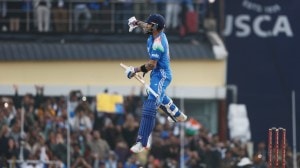Basmati rice: NAA dismisses GST profiteering charge against KRBL
The order states that due to the imposition of GST on India Gate basmati rice and rise in the purchase price of the paddy, there “does not appear to be denial of benefit of ITC (input tax credit)”.
 The GST rate on packaged basmati rice had been increased from nil to 5 per cent from July 1 last year. (Representational Image)
The GST rate on packaged basmati rice had been increased from nil to 5 per cent from July 1 last year. (Representational Image)
In its second order on anti-profiteering under goods and services tax, the National Anti-Profiteering Authority (NAA) has dismissed the complaint against KRBL Ltd, the owner of India Gate Basmati rice brand, by concluding that it did not violate the provisions of the Central GST (CGST) Act.
The order, dated May 4 and issued by NAA’s chairman B N Sharma and other members, states that due to the imposition of GST on India Gate basmati rice and rise in the purchase price of the paddy, there “does not appear to be denial of benefit of ITC (input tax credit)” as alleged by the complainant Kumar Gandharv.
Last month, the Authority had dismissed the complaint against Vrandavaneshwaree Automotive Pvt Ltd, a Bareilly-based Honda car dealer, by concluding that it did not contravene the anti-profiteering provisions of the CGST Act.
On November 27 last year, Gandharv had alleged that India Gate basmati rice had not passed on the benefit of the reduction of GST rate in terms of lower maximum retail price to consumers, adding that the printed price of 10 kg packets had been Rs 540 and Rs 585 in August and October last year, respectively. The application was then examined by the Standing Committee on December 13 and forwarded to the Director General of Safeguards for detailed investigation on December 18, the order said.
The GST rate on packaged basmati rice had been increased from nil to 5 per cent from July 1 last year. The applicant, however, claimed that since India Gate brand name was not registered, so GST was not being paid on outward supply. India Gate started paying GST after the government notified taxation of such brands on September 22, the order said.
Many businesses had started deregistering their brands after GST rollout following which the GST Council in September last year had approved May 15, 2017 as the cut-off date for consideration as a registered brand for the purpose of levy of GST, irrespective of whether the brand was subsequently deregistered. Unbranded food items are exempt from GST, whereas branded and packaged food items attract a 5 per cent rate. The company said that the price of paddy had increased by more than 30 per cent in 2017 over the previous year, while they had not passed on the total cost burden to the consumers by increasing the price of their product only by 8 per cent from Rs 540 to Rs 584.
NAA concluded that during September-November 2017 ITC as a percentage of total value of taxable supplies for the firm varied between 2.69-3 per cent, while the GST rate was 5 per cent and thus, the balance amount of GST was paid in cash. Also, the tax rate was raised from zero to 5 per cent. “Therefore there appears to be no reason for treating the price fixed by the respondent as violation of the provisions of the anti-profiteering clause,” the order said.


- 01
- 02
- 03
- 04
- 05





























